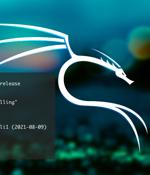Security News

A number of malicious samples have been created for the Windows Subsystem for Linux with the goal of compromising Windows machines, highlighting a sneaky method that allows the operators to stay under the radar and thwart detection by popular anti-malware engines. "These files acted as loaders running a payload that was either embedded within the sample or retrieved from a remote server and was then injected into a running process using Windows API calls," researchers from Lumen Black Lotus Labs said in a report published on Thursday.

Security researchers have discovered malicious Linux binaries created for the Windows Subsystem for Linux, indicating that hackers are trying out new methods to compromise Windows machines. The next step is to inject the malware into a running process using Windows API calls, a technique that is neither new nor sophisticated.

Microsoft has addressed four critical vulnerabilities collectively known as OMIGOD, found in the Open Management Infrastructure software agent silently installed on Azure Linux machines accounting for more than half of Azure instances. OMI is a software service for IT management with support for most UNIX systems and modern Linux platforms, used by multiple Azure services, including Open Management Suite, Azure Insights, Azure Automation.

Kali Linux 2021.3 was released yesterday by Offensive Security and includes a new set of tools, improved virtualization support, and a new OpenSSL configuration that increases the attack surface. Kali Linux is a Linux distribution designed for cybersecurity professionals and ethical hackers to perform penetration testing and security audits.

Offensive Security has released Kali Linux 2021.3, the latest version of its popular open source penetration testing platform. OpenSSL has been configured for wider compatibility, allowing the use of legacy protocols, meaning that Kali can now talk to older, legacy systems that use them.
Researchers on Monday took the wraps off a newly discovered Linux and Windows re-implementation of Cobalt Strike Beacon that's actively set its sights on government, telecommunications, information technology, and financial institutions in the wild. The as-yet undetected version of the penetration testing tool - codenamed "Vermilion Strike" - marks one of the rare Linux ports, which has been traditionally a Windows-based red team tool heavily repurposed by adversaries to mount an array of targeted attacks.

Learn tips on how you can use the Linux openssl command to find critical certificate details. It's important to not only keep an eye on upcoming SSL certificate expirations but to completely verify the success of renewing/replacing these certificates.
An unofficial Cobalt Strike Beacon Linux version made by unknown threat actors from scratch has been spotted by security researchers while actively used in attacks targeting organizations worldwide. Cobalt Strike is also used by threat actors for post-exploitation tasks after deploying so-called beacons, which provide persistent remote access to compromised devices.

The OpenSSL Project has released OpenSSL 3.0, a major new stable version of the popular and widely used cryptography library. OpenSSL contain an open-source implementation of the SSL and TLS protocols, which provide the ability to secure communications across networks.

Fail2ban is one of the first pieces of software I install on Linux servers. I'm going to walk you through that very thing, demonstrating the process that will help you get fail2ban installed on either Rocky Linux or AlmaLinux.